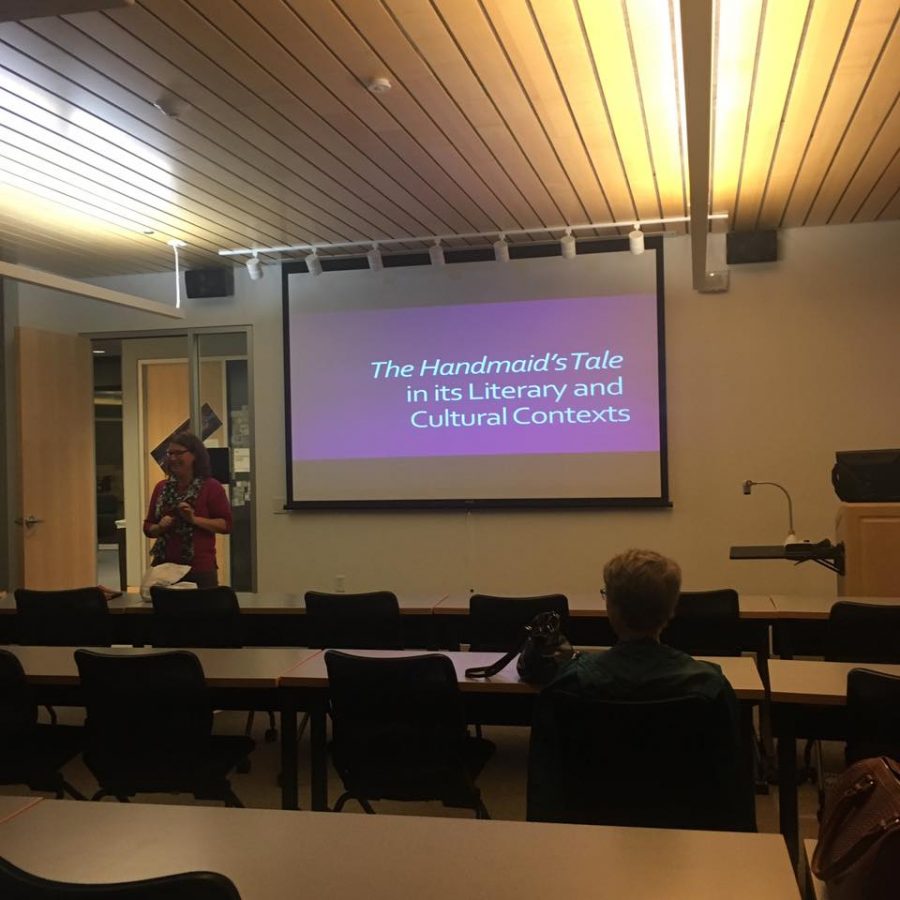Marywood teams up with Scranton Reads for second discussion of an 80s classic
Photo credit/ Amanda Duncklee
Dr. Bittel leading the discussion.
November 10, 2016
Scranton Reads members hosted a lecture at Marywood University on Margaret Atwood’s book, “The Handmaid’s Tale” on Thursday, Oct. 20.
The event took place in Room 331 in the Learning Commons from 7 p.m. to 8:30 p.m. The second city-wide lecture on Gender: the State and the Body was held on Tuesday, Oct. 25.
Associate English professor Dr. Helen Bittel began the lecture with a brief history to inform the audience of the time the book took place. Her presentation displayed the early struggles of women surrounding the 1980s leading up to today, starting with the Equal Rights Amendment (ERA).
The amendment was first introduced in 1923. From then on, it has been reintroduced to the Constitution, but never accepted. Despite the recent social advances in society such as legalizing gay marriage, Bittel stressed that equality of the sexes has yet to be achieved.
“It was radical that women thought their bodies belonged to them,” said Bittel.
She pointed out how Time Magazine only had “Man of the Year” until 1999 when “man” was changed to “person.” Prior to 1999, the group “American Women” was recognized by Time Magazine. Bittel’s point was that men were the standard and women have to work hard to convince men they are worthy to be “Person of the Year.”
Dr. Bittel explained the radical views held by women, mostly in the 1980s, that led to women taking on jobs men traditionally held.
“It was groundbreaking. Women had jobs as police, judges, editors, et cetera, at the time,” said Bittel.
English lecturer Thomas Borthwick continued Dr. Bittel’s lecture, educating the audience on the hardships women face today.
Borthwick began by saying, “Women take the brunt in a society for men.”
Some examples he included were dress codes and rape culture.
Borthwick explained that dress codes are placed to stop women from distracting men in school and work settings. Borthwick also informed the audience that rape victims that speak of their assault are often faced with negative questions that spark survivor guilt.
When asked how to solve these problems, Borthwick replied, “Keep writing books like “The Handmaid’s Tale.”
Contact the writer: [email protected]





